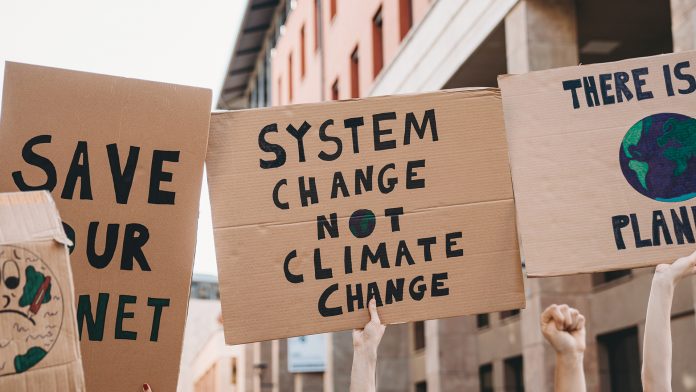A plethora of climate experts worldwide are urging the nation’s leaders to take rapid and effective actions in light of the severe future climate outcomes forecasted in the IPCC Climate Report.
The Working Group I of the Intergovernmental Panel on Climate Change (IPCC) released a damning assessment this week of the current and future state of the planet’s climate, predicting shocking trends that will, if not addressed, condemn the Earth to a disastrous fate of global warming. The IPCC Climate Report indicates that significant and effective strategies need to be implemented to drastically reduced greenhouse gas emissions over the next decade before we reach the point of diminishing returns.
The IPCC Climate Report can be found here.
Shocking discoveries of the IPCC Climate Report
The IPCC Climate Report studied multiple environmental scenarios, identifying that there is more than a 50% probability of the Earth’s temperature rising by 1.5°C between 2021 and 2040, with high-emission scenarios predicting the threshold of 1.5°C could potentially be reached as early as 2037. If the world follows a carbon-intensive pathway – SSP5-8.5 – temperatures could rise to between 3.3°C to 5.7°C higher than pre-industrial levels by 2100. This is especially concerning as the Earth has not observed global warming of more than 2.5°C for over three million years.
Although this devastating future appears to be despairingly imminent, there is still hope. The IPCC Climate Report indicates that global warming can be limited to 1.5°C by the end of the century, reaching highs of 1.5°C in the mid-century before dipping below 1.5°C by 2100. However, the whole planet will need to work expeditiously and in unison to do this, as there is no room for error, and time is short.
Currently, we only have 400 gigatonnes of carbon dioxide left in our carbon budget – the amount of CO2 the planet can emit before global warming exceeds 1.5°C – meaning that if we continue to produce our average annual levels of 36.4 gigatonnes, then the budget will be eradicated in only ten more years. To avoid this, innovative strategies, policies, technologies, and a whole global effort will be required, with experts appealing to the leaders of the world’s nations to come together and take immediate action.
Jeni Miller, the Global Climate and Health Alliance (GCHA) Executive Director, said: “The IPCC Climate Report not only makes clear the scale of the health emergency created by climate warming – the greatest health crisis humanity has ever faced – it tells us that every government, every business, and every institution must take immediate action to rapidly and deeply cut greenhouse gas emissions, achieve major reductions throughout this decade, and net-zero emissions by 2050 if we are to ensure human health and safety on this planet.
“Crucially, the IPCC Climate Report states that ‘it is virtually certain that global surface temperature rise and associated changes can be limited through rapid and substantial reductions in global GHG emissions.’. In other words, we still have a choice. If we are to avoid the worst possible outcomes for humanity, world leaders must converge on this November’s COP26 climate summit with clear plans for rapid decarbonisation.”
The importance of the COP26 climate summit
The GCHA released its Healthy NDCs Scorecard in July, which highlighted weaknesses in individual countries’ plans to address health within their climate policies, and how effective they are at reducing emissions. More countries are scheduled to release their NDCs in the coming months, and with the GCHA set to publish their second round of scorecards in September, the COP26 climate summit held in Glasgow in November will be of vital importance to formulating how the world will prevent this environmental catastrophe.
Miller said: “Leading health organisations have already declared the climate crisis a health emergency and have repeatedly highlighted what climate breakdown means for every person on the planet: the injury, illness, displacement and death from extreme weather events and other impacts we are now increasingly seeing, such as heatwaves, fires, storms, disease spread, crop failures and more.
“To confront this growing crisis, national leaders must make health central to climate policy and ensure those climate policies are ambitious enough to reduce and ultimately eliminate greenhouse gas emissions in order to protect human health. When national leaders arrive at the COP26 climate negotiations in Glasgow this November, they must come armed with commitments that will drive down climate emissions throughout this decade, limit overall warming to 1.5°C, and build health into every aspect of those plans.
“Effective action by governments and businesses could provide us with cleaner air and water, healthier and more secure food supplies, a resilient health sector, and greener transportation and community designs, benefiting people here and now. We can still make a world in which we, our children, and their children not only survive but actually thrive. But if we turn away from this challenge, if government leaders pursue only what is ‘feasible’, not what is necessary, we’ll do irreversible damage and could make the Earth significantly uninhabitable.
“Nothing less than all-out commitment to cut emissions will be enough to protect the lives and health of humanity on this planet. We have solutions. The changes we must make may not be easy, but they are necessary, and they must happen now.”









